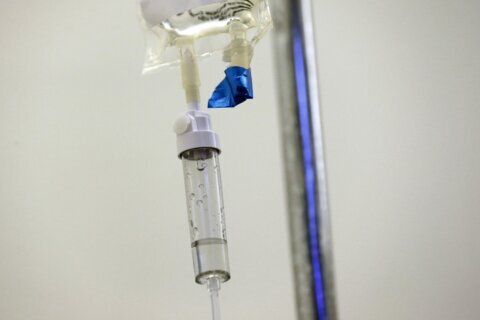
The ongoing shortage of 15 cancer drugs is affecting the treatment of patients — both physically and emotionally — as well as the oncologists who care for them.
“Having a cancer diagnosis is scary — it’s life-disrupting,” said Dr. Julie Gralow, chief medical officer and executive vice president of the American Society of Clinical Oncology. ASCO is the professional organization for clinicians who treat cancer.
The shortages are centered around carboplatin and cisplatin: “They’re old drugs that are now generic, and are injected into a vein,” Gralow said. “So, there’s a more complicated manufacturing process than pills.”
Both drugs are used to treat almost all the common cancers, including breast cancer, lung cancer and colon cancer, according to Gralow. Having to switch treatments causes a strain on both patient and doctor.
“You start a regimen, and now you think, ‘OK, I know how to handle the nausea. I can get through this,’ and then you show up at clinic and are told, ‘We don’t have one of the drugs.’ So we have to rearrange things,” Gralow said. “Just think about the emotional impact that would have.”
She said ASCO asked its members for guidance on which cancers could be treated effectively with alternative drugs, and which should only be treated with the hard-to-get carboplatin and cisplatin.
“For testicular cancer, platinum is a key part,” Gralow said. “They get cures, even with metastatic disease that has spread, with regimens that include platinum agents.”
With other cancers, there are more options.
“For breast cancer, in most situations, there are acceptable alternatives and we can switch the regimens,” Gralow said. “And those are the kind of recommendations we put on our website.”
Congress is considering several proposals that could improve the market for cancer drug manufacturers.
“There’s good bipartisan support, especially given the severity of these drug shortages this year, for fixing the problem,” Gralow said. “These are critical drugs, but they’re off-patent, and we drive the price down so low … so U.S. manufacturers and other high-quality manufacturers” can’t compete.
Some of the bills to stabilize the market include long-term contracts with guaranteed prices, she said.
“I think we’re going to have to agree we can pay a little more for these drugs, which might only cost $50 a dose to stabilize the market,” Gralow said. “[Especially] when you look at all these on-patent drugs for cancer that cost $10,000 to $20,000 a dose.”
The shortages are even affecting the clinical trials of other, newer drugs, said Gralow, since testing includes comparing new drugs to carboplatin and cisplatin.
“We’re strongly supportive of clinical trials. That’s the only way you learn if a new regimen works better than an old regimen, and if a new drug will work better,” Gralow said. “That’s how you get drugs approved.”









